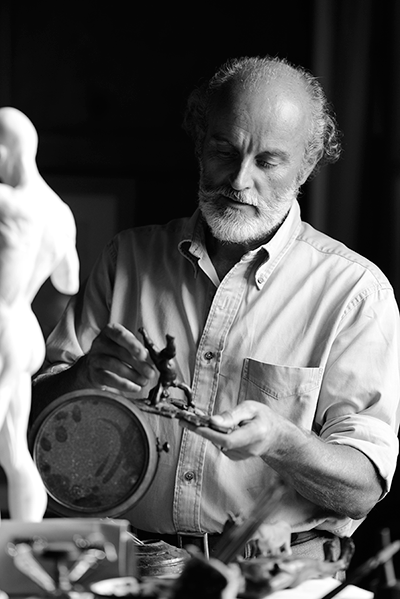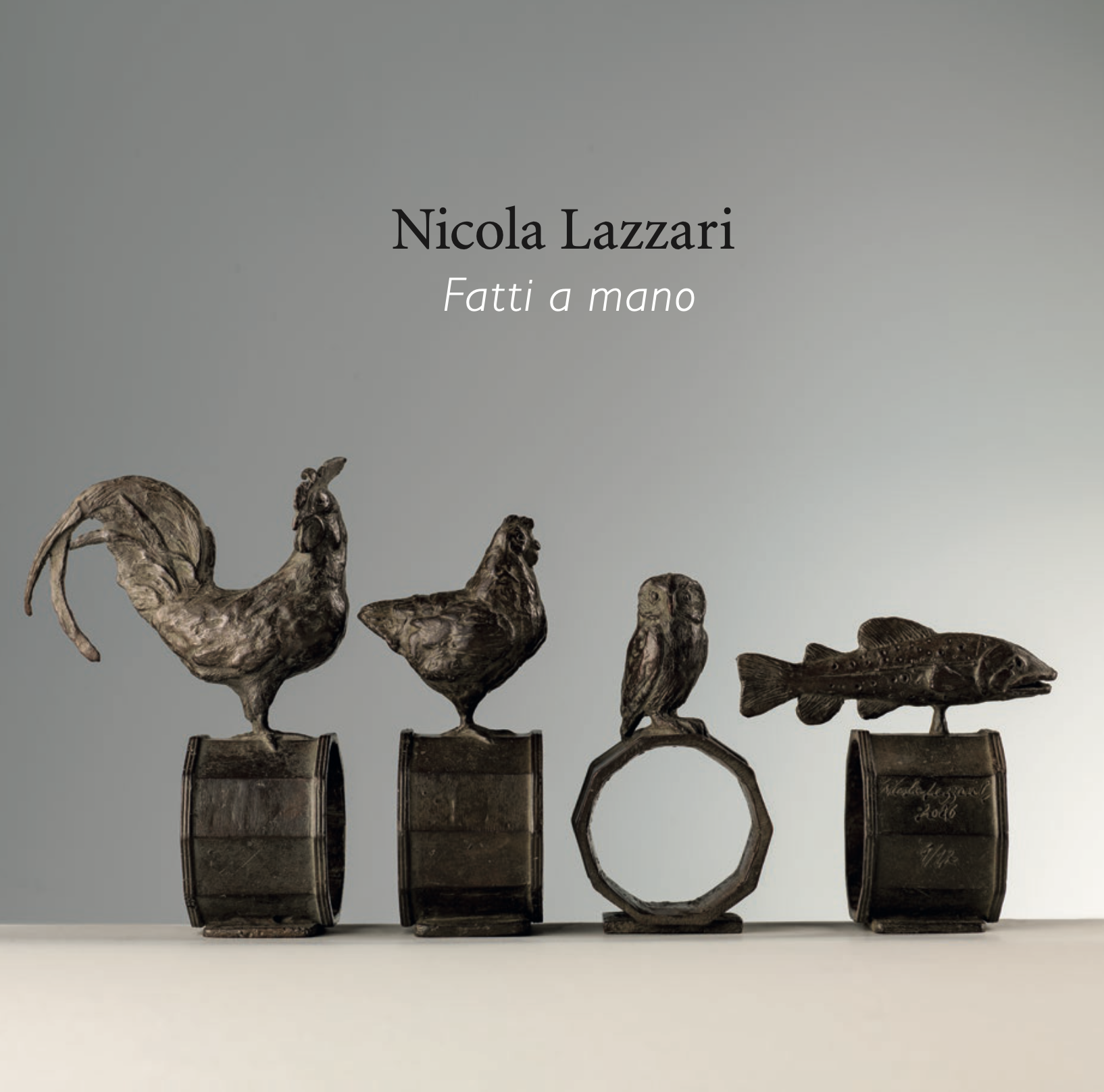Nicola Lazzari | Fatti a mano

About The Artist
Trained as a painter and a sculptor Nicola fashions unusual narrative sculptures of a rare complexity and beauty.
He incorporates self-portraits in many of the works, which have something of a renaissance quality to them, yet borrow also from Giacometti and other modern masters. Charming, intriguing, witty and exquisitely sculpted his bronzes have a keen international following. His “Boatman” fetched a record price at the Keeneland auction in Kentucky in 2014.
Extract of John Winter’s Essay introducing Fatti a mano, Nicola Lazzari’s 2016 Exhibition at Sladmore Contemporary.
“Two different worlds meet in Lazzari’s work. Firstly, there is the Italian tradition of the representation of objects from nature, straightforward depictions of birds and animals, lacking the often overplayed drama of the romantic treatment of the same subject in nineteenth century. He seems, instead, to be looking back to the animal bronzes (frogs, toads, lizards, serpents, insects) of the Paduan workshops of the early sixteenth century, continued later in the same century with the wonderful birds and domestic fowl, conceived on an altogether grander scale yet retaining a distinctly homely aspect, produced by Ammanati and Giambologna for the grotto of The Medici Villa at Castello.
Alongside this naturalism runs a totally diverse current, altogether more Northern in feeling, that pervades some of the compositions with their faintly sinister air: the male heads on the series of Scatole, reminiscent of medieval fountains with jesters, or half-formed gargoyles taken from Gothic edifices; the seated monkeys placed uneasily on protruding ledges; and, finally, the very choice of the birds themselves (the owl is the bird of the night, whilst the beautiful hoopoe is also seen in Italian tradition as a harbinger of death). In this world the ‘Curiosities’ begin to take on the aspect of a wunderkammer, a deliberately strange mixture of the magical and natural realms, worthy perhaps of the Prague of Rudolph II.

